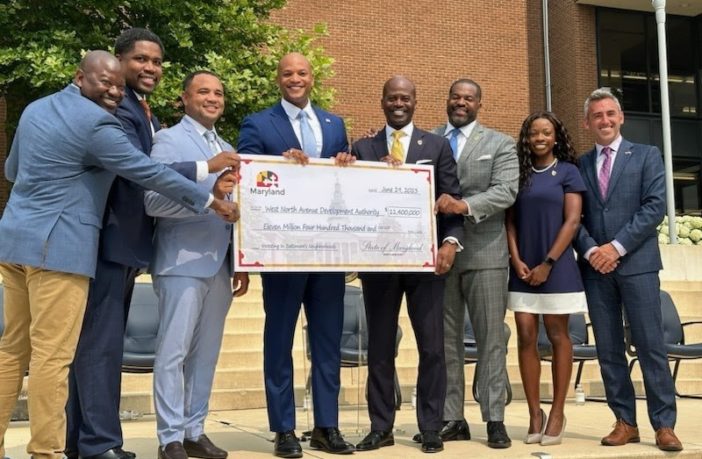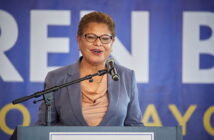By Megan Sayles,
AFRO Business Writer,
msayles@afro.com
Revitalization dollars are coming to help improve the West Baltimore Corridor.
Governor Wes Moore, alongside Senator Antonio Hayes (D-Md.-40) and Delegate Marlon D. Amprey (D-Md.-40), presented $11.4 million in state funds to the West North Avenue Development Authority (WNADA) on June 29.
WNADA will use the bulk of the money to award grants to organizations proposing redevelopment projects and transformational initiatives along the West North Avenue Corridor, which runs between Coppin State University (CSU) and the Maryland Institute College of Art (MICA).
“This is a down payment on growth in West Baltimore. This is a down payment on economic development in West Baltimore,” said Moore. “This is a downpayment on a community that is not just ready, but a community that is eager to shape their own destiny.”
Moore also pointed out that his investment in WNADA is more than 22 times that of the previous administration.
“Last time the state provided funding for WNADA, it gave $500,000, so today, this announcement identifies the fact that we multiplied that initial seed investment from the state of Maryland by a factor of 22,” said Moore. “This investment is absolutely critical because you aren’t just looking at housing, you aren’t just looking at transportation, you aren’t just looking at economic development– you’re looking at all three at once–and that’s how we achieve a societal build-up.”
Established by the Maryland General Assembly in 2021, WNADA seeks to advance housing, neighborhoods, economic development and transportation along the West North Avenue corridor by supporting revitalization projects. The organization is chaired by CSU President Anthony L. Jenkins.
The organization hopes to improve the quality of life in West Baltimore, which has been impeded by historic discrimination and disinvestment.
“We are not here by happenstance. When you drive from I-83 to Hilton Avenue you see blight, decay, stress and struggle,” said Nick Mosby, president of the Baltimore City Council. “It was very intentional. It was policies that were shaped in racism and bigotry by our public and private sector. It was those decisions made by those policymakers that intentionally hurt our communities.”
WNADA intends to continue working closely with the community for revitalization plans and has already engaged more than a dozen community associations across West Baltimore. The organization plans to open grant applications to local organizations later this year.
“We’re not going to turn West Baltimore around overnight. It didn’t get this way overnight, so I need everybody to be patient,” said Jenkins. “Your voices, comments, concerns, criticism and feedback are [being]heard. We’re listening, and we’re taking it in. Collectively we will return West Baltimore to the thriving city it once was.”
Megan Sayles is a Report for America Corps member.



